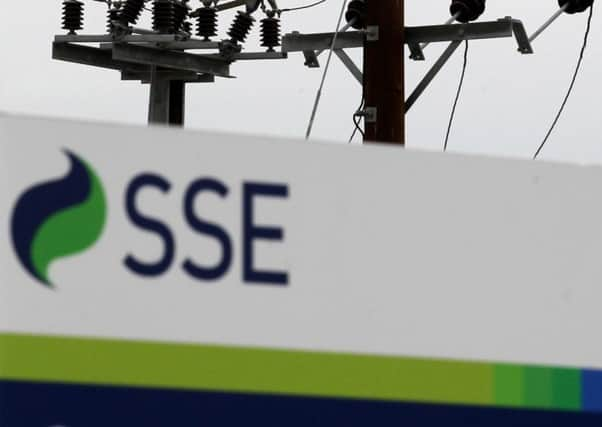Leaders: SSE | Alex Salmond


Coming just two months after announcing an 8.2 per cent price rise and days after a roasting of energy executives in front of a Commons select committee, such a level of profit cannot but outrage millions struggling to make ends meet as wages continue to lag behind inflation – and well behind the relentless price increases of the energy giants. The typical annual bill for SSE customers will hit £1,304 by March. Across the board, the average household utility bill has rocketed by 168 per cent in the past decade.
There are now signs that SSE’s pricing policy is resulting in a loss of customers. The number of its UK household accounts fell by 250,000 in the last nine months of 2013. That may seem a small exodus when compared to its 9.2 million customer total. But in a competitive market, albeit one with a worrying appearance of oligopoly, no company would wish to be regarded for long as a least-favoured supplier.
Advertisement
Hide AdAdvertisement
Hide AdThe problem for government is how to break the cycle of ever-rising bills without damaging the revenue generation necessary to meet the costs of infrastructure investment and triggering further concentration in the industry. That indicative profit figure cannot but provoke outrage. But the increase is 8.8 per cent – not quite so outrageous a figure. As for payments to shareholders – the company is a constituent of the FTSE100 and its shares are widely held by UK local authority and private sector pension funds because of their requirement for reliability and consistency of dividend payments – these are expected to rise by some 3 per cent; again, not so ferocious an increase.
SSE also has to finance substantial investment in its infrastructure. While that programme is likely to be down a little in the coming year due to the UK government’s decision not to include two major offshore wind farms in an early subsidy programme, the group says it invests more in Britain’s energy infrastructure than any other company and that it has spent an annual total of between £1.5 billion and £1.7 billion every year since 2010.
And the pricing regime is moderating, if all too grudgingly. In March, SSE will cut prices by £45, after Chancellor George Osborne announced changes to the green levies, which reduces costs for utility firms. And, following in the footsteps of rivals Npower, EDF and British Gas, it has also said it will cap prices at their new level until spring next year.
But all this is a disconcertingly slow response, both to the evident plight of customers and to the political furore. SSE needs to respond far more quickly and forcefully to the pressure on its customers. Until it does so, it will face even more of a public relations rough ride than it has suffered already.
Salmond’s Beyoncé-style entourage
HOW could a Scottish Government visit to a Ryder Cup event in Chicago come to cost almost £470,000? And was it really necessary for First Minister Alex Salmond to stay in the upmarket, £1,200-a-night Peninsula Hotel favoured by the likes of Beyoncé, Brad Pitt and Justin Bieber?
What a gift for Labour leader Johann Lamont at First Minister’s Questions yesterday. As it turns out, Mr Salmond stayed at the Peninsula for only part of his trip, with his duties also taking in business promotion, and the spending was not just by him. There was the Scottish Government entourage – and some entourage: 17 in all.
Even making full allowance for various purposes of the visit, was it really essential that the First Minister had 17 bag-carriers, advisers and functionaries? There may be the strongest case for the Scottish Government to be represented at a Ryder Cup conference. But it should hardly require such numbers. It is not necessary to oblige the First Minister to check into a Travelodge to achieve a degree of moderation on these overseas trips. But at a time of acute pressure on the public finances and when the administration is imposing spending curbs on local authorities, the Scottish Government needs to take care how such a large sum might appear. And the First Minister should need no reminding of the sensitivity of such spending, with the independence referendum just nine months away.
His administration needs to take care, not just that it is securing value for money for every pound that it spends, but that discipline is used in the expenditure of public funds. An entourage of 17 is stretching it, even for Brad Pitt or Beyoncé.